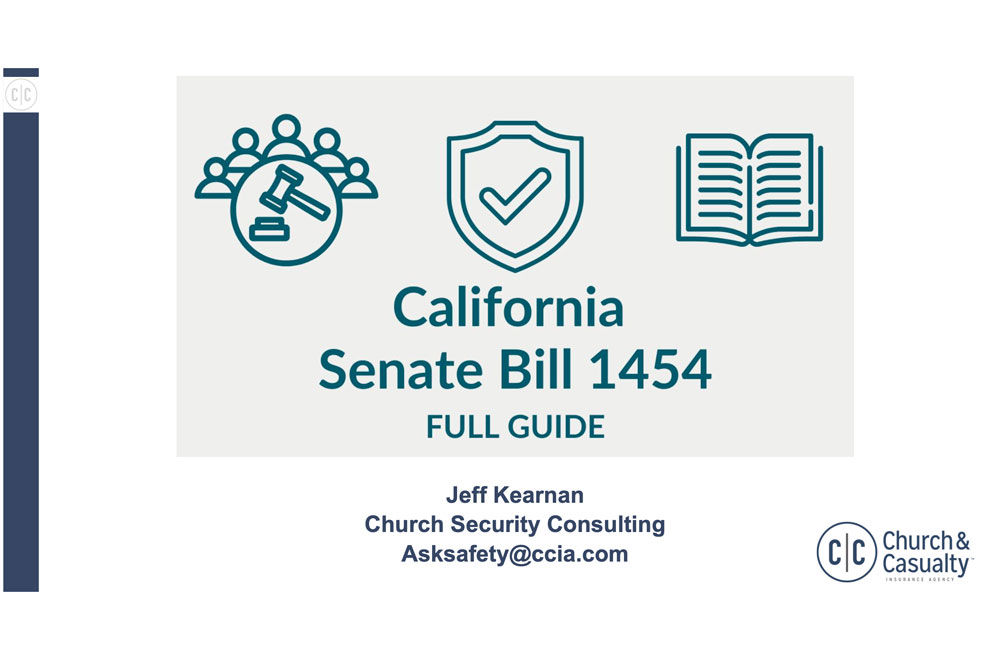California Senate Bill 1454 (SB 1454) represents a major shift in how faith-based and charitable organizations must approach safety and security. For decades, nonprofits and houses of worship operated under broad exemptions from state licensing requirements. SB 1454 removes those exemptions, placing ministries, NGOs, and charitable groups under the oversight of the Bureau of Security and Investigative Services (BSIS).
This change means that organizations can no longer rely on informal or volunteer “security teams” without considering regulatory implications. The law now treats these groups like any other employer of security personnel, with clear triggers for BSIS regulation.
Key Triggers for Regulation
The presentation highlights several scenarios that can place an organization under BSIS oversight:
- Use of the term “Security” – Even unpaid volunteers labeled as “security” may be classified as Proprietary Private Security Officers (PPSOs).
- Uniformed personnel – Distinctive uniforms identifying volunteers as security trigger licensing requirements.
- Armed personnel – Any armed role, whether volunteer or staff, requires full compliance with Private Patrol Operator (PPO) licensing, guard cards, and firearms permits.
- Public interface – Volunteers who patrol, intervene in disturbances, or interact with the public in a security capacity may fall under BSIS regulation.
Volunteer Roles and the “Gray Area”
Unarmed volunteers designated as “safety” rather than “security” remain outside BSIS oversight if their duties are limited to observing, reporting, assisting, or providing hospitality. However, once volunteers are trained or deployed as a “security team,” regulators may argue they are functioning as PPSOs—even without uniforms. This gray area requires careful policy language, clear role definitions, and risk management strategies.
Legal and Practical Risks
Discontinuing safety or security teams altogether is not a defensible option. Courts evaluate foreseeability of harm, and in today’s environment, risks to congregations and guests are well-documented. Eliminating safety functions could expose organizations to premises liability claims and weaken their ability to demonstrate a duty of care. Insurers and legal counsel also rely on documented safety measures to defend against negligence claims.
Compliance Options
The presentation outlines several pathways forward:
- Contracting with licensed security vendors.
- Creating a Proprietary Security Employer (PSE) for unarmed roles.
- Establishing a PPO for armed roles.
- Partnering with a security company to “adopt” volunteers under its license and insurance.
Conclusion
SB 1454 complicates how nonprofits and houses of worship structure their teams, but it also provides clarity. The safest path is not to eliminate safety functions, but to restructure them into compliant models—hospitality/safety ministries for volunteers and PPO partnerships for armed or uniformed roles.
For a deeper dive into scenarios, statutory references, and compliance strategies, see the attached SB 1454 Full Guide 2025 presentation.

